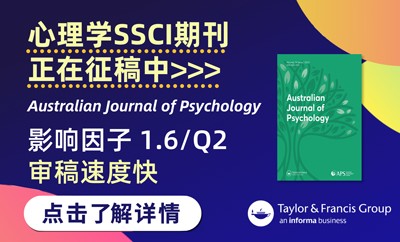当前位置:
X-MOL 学术
›
Front. Psychiatry
›
论文详情
Our official English website, www.x-mol.net, welcomes your
feedback! (Note: you will need to create a separate account there.)
Depression-, anxiety- and anger and cognitive functions: Findings from a longitudinal prospective study
Frontiers in Psychiatry ( IF 3.2 ) Pub Date : 2021-06-04 , DOI: 10.3389/fpsyt.2021.665742 Jutta Lindert , Kimberley C. Paul , Margie E. Lachman , Beate Ritz , Teresa E. Seeman
Frontiers in Psychiatry ( IF 3.2 ) Pub Date : 2021-06-04 , DOI: 10.3389/fpsyt.2021.665742 Jutta Lindert , Kimberley C. Paul , Margie E. Lachman , Beate Ritz , Teresa E. Seeman
Background: Determinants of changes in cognitive function during aging are not well understood. We aimed to estimate the effects of depression-, anxiety- and anger symptoms on cognition and on cognition changes, especially on changes in episodic memory (EM) and executive functioning (EF). Methods: We analyze data from the Mid-Life in the Midlife in the United States Biomarker study at two time points including n=710 women, and n=542 men (1996/1997) at the first assessment and n=669 women, and n=514 men at the second assessment (2013/14). To assess cognition we used the Brief Test of Adult Cognition (BTACT). To measure depression-, anxiety- and anger symptoms we used the Mood and Anxiety Symptom Questionnaire (MASQ), the Center for Epidemiologic Studies Depression Scale (CES-D) and the State-Trait Anger Expression Inventory (STAXI). We used repeated models analyses to explore changes in cognition, and repeated measures linear mixed-effects models to investigate depression, anxiety and anger effects on cognition. Results: At the first assessment, women had significantly better episodic memory functioning than men; men in the oldest age group had significant better executive functioning. At the second assessment, more education, and white ethnicity were associated with less negative changes on episodic memory and executive functioning. Depression- and anger symptoms were associated with declines in episodic memory among women; anxiety symptoms were associated with declines in episodic memory and executive functioning in both gender in men (EF: β: -0.02 (95% CI -0.03, - 0.01; EM: β -0.02 (-0.02, 95% CI: -0.03, - 0.01) and in women (EF: β -0.01, 95% CI: -0.02, - 0.0004; EM: β -0.013, 95% CI: -0.03, -0.001). Conclusions: Depression-, anxiety- and anger symptoms were associated with changes in episodic memory and executive functioning. Further longitudinal studies are critical in populations in more countries to better understand the impact of depression, anxiety and anger symptoms on cognition changes.
中文翻译:

抑郁、焦虑、愤怒与认知功能:纵向前瞻性研究的结果
背景:衰老过程中认知功能变化的决定因素尚不清楚。我们的目的是评估抑郁、焦虑和愤怒症状对认知和认知变化的影响,特别是对情景记忆(EM)和执行功能(EF)变化的影响。方法:我们分析了美国中年生物标志物研究中两个时间点的数据,第一次评估时包括 n=710 名女性和 n=542 名男性 (1996/1997),n=669 名女性,并且第二次评估(2013/14 年)时,n=514 名男性。为了评估认知能力,我们使用了成人认知简要测试(BTACT)。为了测量抑郁、焦虑和愤怒症状,我们使用了情绪和焦虑症状问卷 (MASQ)、流行病学研究中心抑郁量表 (CES-D) 和状态特质愤怒表达量表 (STAXI)。我们使用重复模型分析来探索认知的变化,并使用重复测量线性混合效应模型来研究抑郁、焦虑和愤怒对认知的影响。结果:在第一次评估时,女性的情景记忆功能明显优于男性;年龄最大的男性的执行功能明显更好。在第二次评估中,更多的教育和白人种族与情景记忆和执行功能的负面变化较少相关。女性的抑郁和愤怒症状与情景记忆下降有关。焦虑症状与男性的情景记忆和执行功能下降相关(EF:β:-0.02(95%CI -0.03,- 0.01;EM:β-0.02(-0.02,95%CI:-0.03, - 0.01)和女性(EF:β -0.01,95% CI:-0.02,- 0.0004;EM:β -0.013,95% CI:-0.03,-0.001)。 结论:抑郁、焦虑和愤怒症状与情景记忆和执行功能的变化相关。进一步的纵向研究对于更多国家的人群至关重要,以更好地了解抑郁、焦虑和愤怒症状对认知变化的影响。
更新日期:2021-06-04
中文翻译:

抑郁、焦虑、愤怒与认知功能:纵向前瞻性研究的结果
背景:衰老过程中认知功能变化的决定因素尚不清楚。我们的目的是评估抑郁、焦虑和愤怒症状对认知和认知变化的影响,特别是对情景记忆(EM)和执行功能(EF)变化的影响。方法:我们分析了美国中年生物标志物研究中两个时间点的数据,第一次评估时包括 n=710 名女性和 n=542 名男性 (1996/1997),n=669 名女性,并且第二次评估(2013/14 年)时,n=514 名男性。为了评估认知能力,我们使用了成人认知简要测试(BTACT)。为了测量抑郁、焦虑和愤怒症状,我们使用了情绪和焦虑症状问卷 (MASQ)、流行病学研究中心抑郁量表 (CES-D) 和状态特质愤怒表达量表 (STAXI)。我们使用重复模型分析来探索认知的变化,并使用重复测量线性混合效应模型来研究抑郁、焦虑和愤怒对认知的影响。结果:在第一次评估时,女性的情景记忆功能明显优于男性;年龄最大的男性的执行功能明显更好。在第二次评估中,更多的教育和白人种族与情景记忆和执行功能的负面变化较少相关。女性的抑郁和愤怒症状与情景记忆下降有关。焦虑症状与男性的情景记忆和执行功能下降相关(EF:β:-0.02(95%CI -0.03,- 0.01;EM:β-0.02(-0.02,95%CI:-0.03, - 0.01)和女性(EF:β -0.01,95% CI:-0.02,- 0.0004;EM:β -0.013,95% CI:-0.03,-0.001)。 结论:抑郁、焦虑和愤怒症状与情景记忆和执行功能的变化相关。进一步的纵向研究对于更多国家的人群至关重要,以更好地了解抑郁、焦虑和愤怒症状对认知变化的影响。






















































 京公网安备 11010802027423号
京公网安备 11010802027423号